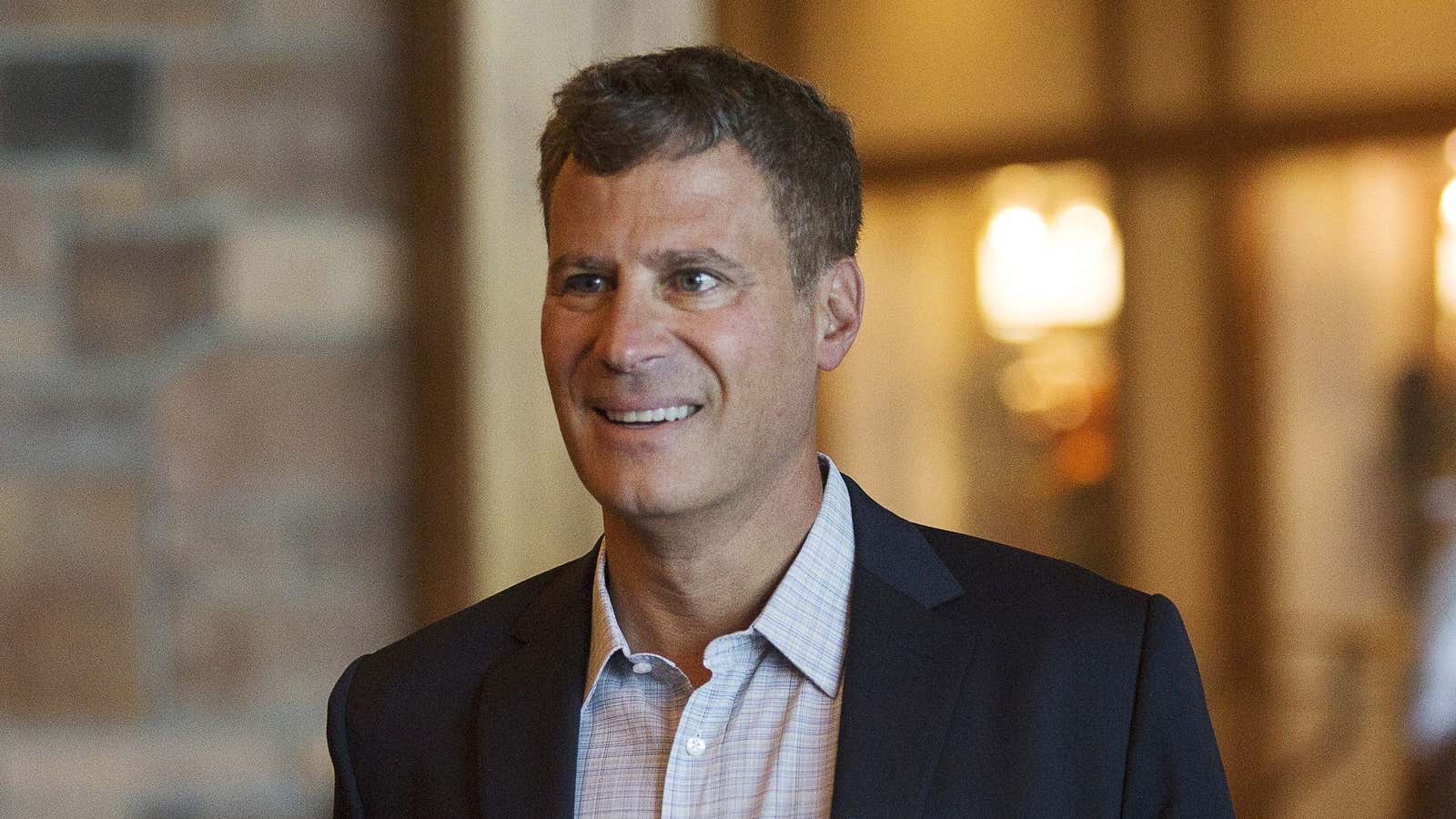Economist Alan Krueger died over the weekend, at age 58. It is a major loss for the economics profession, and also for the low-income workers who were the focus of Krueger’s research.
Krueger was a long-time professor at Princeton University. He also served as chief economist for the US Department of Labor under Bill Clinton and later chaired Barack Obama’s Council of Economic Advisors.
In economics circles, he is best known for his research on the effects of the minimum wage. Along with David Card, Krueger’s work revealed that raising the minimum wage did not necessarily have the negative effect on job creation that economists had assumed. Although their work is often disputed, it pushed the debate forward, and is frequently used to support minimum wage increases across the world.
Krueger’s interest in the plight of low-income workers extended beyond the minimum wage. He also published influential research on the gig economy (paywall) and the rising share of men in the US who are unemployed and not looking for jobs. In each of the past two years, for Quartz’s annual review of economics research, we asked Krueger to highlight his favorite paper of the year. He pointed to studies about how to address the US’s opioid epidemic and how the lack of public school financing hurts poor students.
Last year may have marked Krueger’s crowning achievement as an economist working for the public good. Along with fellow Princeton economist Orley Ashenfelter, Krueger published the paper, “Theory and Evidence on Employer Collusion in the Franchise Sector.” The study found that a majority of major food and service chains in the US, including McDonald’s, Burger King, Jiffy Lube, and H&R Block, had agreements between franchises that they would not recruit each other’s workers. So, for example, a worker at one McDonalds would never be recruited by a person starting another McDonald’s. Their research suggested these agreements had the effect of lowering workers’ wages by reducing competition between low-wage employers, impacting millions of workers.
The reaction was swift. The research was a contributing factor to a probe by attorneys general in 10 states and District of Columbia. A number of franchises, including McDonald’s, have agreed to drop “no-poaching” agreements from their contracts since the research was released.
“This paper has had an immediate policy impact, like no other paper I can think of, at least in recent memory, in labor economics,” Princeton economist Alexandre Mas told Quartz by e-mail. “It’s led to a national crackdown on no-poaching agreements which will likely have a measurable impact on worker wages and opportunities in the labor market.”
The paper showed how academic economists can directly influence public policy. They may not know it, but millions of workers have Krueger to thank, in part, for making it easier to find a job in one of the most precarious sectors of the economy.
